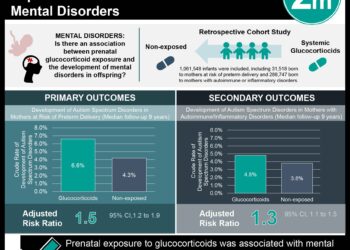Wellness Check: Spirituality
1. In this randomized controlled trial, depressed patients who received Meditation-Based Lifestyle Modification (MBLM) had a greater increase in spirituality than those who received treatment as usual.
2. Furthermore, baseline interest in spirituality and engagement in mind-body practice were two predictive factors of improved depression and perceived stress in response to treatment.
Evidence Rating Level: 1 (Excellent)
Religiosity and spirituality (R/S) are associated with several positive mental health effects, including improvements in dementia, depression, and substance abuse. However, other studies have found negative effects of R/S on mental health through religious struggle. Meditation-Based Lifestyle Modification (MBLM) is a newer intervention that combines a focus on the mind and body with spirituality. Prior research has found that MBLM is effective in improving moderate depression. However, there is still a lack of understanding of how R/S plays into the effects of MBLM on depression. This study aimed to assess the role that R/S has in the treatment effects of MBLM on mild-to-moderate depression.
This randomized controlled trial included 81 participants at a psychiatry, psychosomatics, and psychotherapy clinic in Germany. Participants were included if they were adult psychiatric outpatients who were diagnosed with mild or moderate depression. Participants were randomized into one of three groups. The first group received 8 weeks of MBLM treatment, the second received treatment as usual (TAU), which consisted of tailored multimodal therapy, and the third received no further treatment, only drug continuation therapy. Following this, participants were randomized to either TAU or TAU and MBLM for 16 weeks. Depression severity was assessed using the Beck Depression Inventory (BDI)-II. Spirituality was assessed using a 5-point scaled question, the Aspects of Spirituality (ASP) questionnaire, and the Spiritual and Religious Attitudes in Dealing with Illness (SpREUK) questionnaire. The primary outcome was the impact of the treatment on spirituality, as assessed by the various spirituality questionnaires.
The results demonstrated that patients who received MBLM treatment had an increase in spirituality compared to the other treatment groups at 8 weeks. This effect was evidenced by higher scores on the various spirituality questionnaires, including metrics related to religious orientation, spiritual practices, and more. At 6 months, participants who received MBLM treatment demonstrated significantly higher scores on the various spirituality questionnaires than those who received TAU. There were two variables that were identified at 6 months that could predict the change in depression and perceived stress in these groups, and these were baseline interest in spirituality and baseline engagement in mind-body practice. However, the study was limited by the use of patient-rated questionnaires, which may have introduced bias. Nonetheless, the present study demonstrated that R/S can be a predictive factor of clinical outcomes in the treatment of depression.
Spirituality has contradictory effects on coping during pregnancy
1. In this systematic review, there were four main themes identified related to women’s experiences of social support during pregnancy: “a variety of emotional support,” “tangible and intangible instrumental support,” “traditional rituals and spiritual support,” and the “all-encompassing natal home.”
2. Although traditional rituals and spiritual support were associated with improved coping in some pregnant women, others found that spirituality was associated with increased stress.
Evidence Rating Level: 1 (Excellent)
Pregnancy can present several challenges for the expecting mother, including psychological distress, financial instability, and physical health issues. Social supports may help alleviate these challenges and improve the mother’s and child’s overall quality of life. Although the literature points to the benefit of social supports during pregnancy on wellbeing and physical health, most studies have taken a quantitative approach to examining this benefit. The aim of this study was to review the qualitative evidence on women’s experiences of social support during pregnancy to better understand this topic.
Of 1,597 identified records, 14 studies (n=571 participants) were included. Studies were included if they were written in English, included primarily adult women who were pregnant or had given birth, assessed the experiences of social supports during pregnancy, and the participants were not recruited because of a pre-existing health condition. Studies were excluded if they explored social support in breastfeeding, included participants under the age of 17, or included pregnant women with HIV, diabetes, intellectual disabilities, or visual impairments. The review was carried out according to PRISMA guidelines. The primary outcome was the major qualitative themes regarding women’s experiences of social supports during pregnancy, determined through thematic synthesis.
The results demonstrated that there were four main themes regarding women’s experiences of social support during pregnancy: “a variety of emotional support,” “tangible and intangible instrumental support,” “traditional rituals and spiritual support,” and the “all-encompassing natal home.” Spiritual support took a variety of forms, including advice on movement, exercise, and traditional foods. Although many women found spiritual support to be an important factor in reducing stress and improving coping, others found that spirituality increased stress levels. However, the review is limited by the fact that most of the studies were conducted in low-income countries, so the findings may not be generalizable to pregnant women in higher-income areas. Nonetheless, the present study demonstrated that spirituality is one of many important social supports for women during pregnancy.
Family caregivers of patients with advanced cancer show variations in spiritual coping levels
1. In this cross-sectional study, family caregivers of patients with advanced cancer had moderate spiritual coping levels.
2. However, there were variations in spiritual coping levels based on demographic factors, such as gender, religious identity, and the presence of depression and anxiety.
Evidence Rating Level: 3 (Average)
Family caregivers of patients with advanced cancer provide several forms of support to their loved ones, which often come at the expense of their own wellbeing. As a result, many family caregivers experience challenges related to mood, sleep, and more. Spiritual coping is one way to help alleviate the burden on family caregivers. Although spiritual coping has been explored in caregivers of those in other situations, such as stroke survivors or palliative care patients, the role of spiritual care in caregivers of patients with advanced cancer has not been well explored. This study aimed to evaluate the spiritual coping of family caregivers of patients with advanced cancer.
This cross-sectional study included 358 family caregivers of patients with advanced cancer in Shanghai, China. Participants were included if the patient and caregiver were both 18 years or older, the caregiver was caring for a family member with stage III or IV cancer, and the carer was the primary caregiver involved in treatment decision-making. Participants were excluded if they were non-family member caregivers. Several questionnaires were administered to the caregivers to elucidate spiritual coping, social support, and mental health, including the Spiritual Coping Scale (SCS), Perceived Social Support Scale (PSSS), Hospital Anxiety/Depression Scale (HADS), and the Spiritual Health Scale-Short Form. The primary outcomes were the scores on the various instruments as a marker of spiritual coping.
The results demonstrated that family caregivers of patients with advanced cancer had moderate spiritual coping levels, evidenced by their total spiritual coping scores. There were significant differences in spiritual coping based on demographic characteristics. For example, caregivers who identified as women or religious had higher levels of spiritual coping. On the other hand, those with anxiety and depression exhibited lower levels of spiritual coping. There was no significant association between spiritual coping levels and caregiving burden, social support, optimistic-pessimistic tendencies, or hope. However, the study was limited by its cross-sectional nature, which prevented determinations about causality. Nonetheless, the present study outlined the spiritual coping levels of family caregivers of patients with advanced cancer.
Image: PD
©2023 2 Minute Medicine, Inc. All rights reserved. No works may be reproduced without expressed written consent from 2 Minute Medicine, Inc. Inquire about licensing here. No article should be construed as medical advice and is not intended as such by the authors or by 2 Minute Medicine, Inc.







